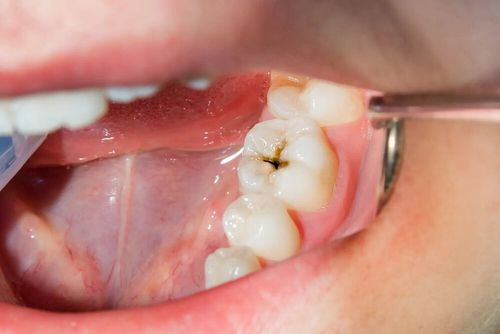If your cavity hurts or you feel like your mouth is infected, it is advisable to seek emergency dental care immediately. However, suppose the cavity isn’t causing immediate pain, and no infection is present. In that case, you may wonder if you should wait until regular office hours to get the cavity treated.
In this post, we will discuss what makes cavities an emergency and how you can tell the difference between when it’s an emergency and when it’s not.
The cavity seems small. Do I need to see the dentist?
Cavities are completely treatable when caught early, so it’s crucial to be aware of any changes to your teeth or gums. Even if the cavity is small, the underlying damage to the tooth could be more extensive.
If left untreated, a cavity can cause pain and eventually require a root canal or an extraction. Even if the cavity appears minor right now, it’s still worth getting checked out by your dentist to ensure no further damage is present.
Can I Rely on Pain Relievers?
If your cavity is causing you pain, you may wonder if you can rely on over-the-counter (OTC) pain relievers to help. The short answer is yes. However, it is not recommended as a long-term solution. OTCs can provide temporary relief and make it easier to tolerate the pain until your next appointment.
However, treating a cavity with pain relievers won’t work. Pain is a problem that requires a dental solution. Therefore, it’s important to make an appointment with your dentist as soon as possible so that the cavity can be properly treated and the source of your pain can be addressed.
What If the Pain Stops?
Even though the cavity won’t be causing you immediate pain, bacteria can still work inside the cavity and infect the adjacent teeth and gums. Therefore, getting to the dentist as soon as possible is still important. This is because cavities don’t improve independently—they worsen over time.
It’s better to solve the problem early by getting it taken care of right away rather than wait until it worsens. That way, you don’t have to suffer more long-term pain or risk costly treatments. Additionally, preventing further damage can save time and money in the long run. Therefore, if your cavity stops hurting, get to a dentist sooner rather than later.
When Should I See a Dentist for a Cavity?
Here are some of the telltale signs to seek dental care immediately:
- Gum or teeth pain
- Swollen gums
- Discomfort when chewing or biting
- Sensitivity to cold or hot foods
We Can Help Treat Your Cavity
At Refresh Valley Dental, our experienced Northampton dentist, can help diagnose and treat your cavity. With her extensive experience in dentistry and dental emergencies, she can provide you with the best care possible. Don’t suffer any longer! Contact us for fast and effective treatment for your cavity.
